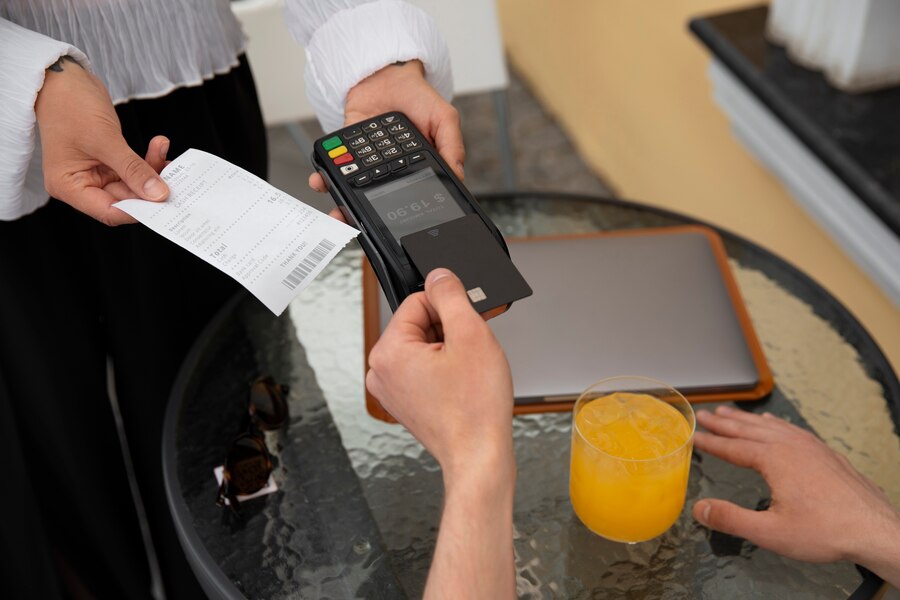Credit cards can be convenient financial tools, offering flexibility and rewards for purchases. However, failing to manage credit card debt responsibly can quickly lead to financial trouble. One common mistake that many people make is paying only the minimum amount due on their credit card bills. While this may seem like a manageable way to handle debt in the short term, it can ultimately result in a cycle of debt that’s difficult to escape. In this blog, we’ll explore why paying the minimum amount due on credit cards can be a risky strategy and how it can lead to a debt trap.
Understanding Minimum Payments
The minimum amount due on a credit card bill is the smallest payment you’re required to make each month to keep the account in good standing. It’s typically calculated as a percentage of your total outstanding balance, usually around 1-3%, plus any fees and interest charges. While paying the minimum amount due can help you avoid late fees and penalties, it’s important to recognize that it’s not a sustainable way to manage credit card debt in the long term.
The Minimum Payment Trap
Paying only the minimum amount due on your credit card bill can trap you in a cycle of debt for several reasons:
1. Interest Accumulation: Credit cards typically carry high interest rates, often ranging from 15% to 25% or more. By paying only the minimum amount due, you’re barely making a dent in the principal balance, allowing interest to accumulate rapidly. This means you’ll end up paying much more in interest over time, prolonging the time it takes to pay off the debt.
2. Extended Repayment Period: Because you’re only paying the minimum amount due each month, it will take much longer to pay off your credit card debt compared to making larger payments. This extended repayment period means you’ll be stuck in debt for years, paying far more in interest than the original amount borrowed.
3. Negative Impact on Credit Score: Carrying high balances relative to your credit limits, known as credit utilization, can negatively impact your credit score. By consistently paying only the minimum amount due, you’re likely to have high credit utilization, which can lower your credit score and make it more difficult to qualify for loans or credit in the future.
4. Lack of Progress: By making only the minimum payment, you’re essentially treading water – you’re not making any significant progress toward paying off the debt. This can be discouraging and may lead to feelings of frustration or hopelessness, making it even harder to break free from the debt cycle.
Breaking Free from the Minimum Payment Trap
If you find yourself caught in the minimum payment trap, don’t despair – there are steps you can take to break free and regain control of your finances:
1. Pay More Than the Minimum: Whenever possible, pay more than the minimum amount due on your credit card bills. Even paying just a little extra each month can make a significant difference in reducing your overall debt and saving on interest charges.
2. Create a Budget: Develop a realistic budget that prioritizes paying off debt and sticks to it. Identify areas where you can cut back on expenses and redirect those funds toward paying down your credit card balances.
3. Consider a Debt Repayment Plan: If you have multiple credit card debts, consider consolidating them into a single loan with a lower interest rate through a debt consolidation program. This can simplify your finances and make it easier to manage your debt.
4. Negotiate with Creditors: Reach out to your credit card issuers and ask if they’re willing to lower your interest rates or work out a repayment plan that’s more manageable for you. Many creditors are willing to negotiate with borrowers who are struggling to make payments.
5. Seek Professional Help: If you’re feeling overwhelmed by your debt and don’t know where to turn, consider seeking help from a credit counseling agency or financial advisor. They can provide guidance and support to help you develop a plan for paying off your debt and regaining control of your finances.
Conclusion
Paying only the minimum amount due on credit cards may seem like a convenient way to manage debt in the short term, but it can ultimately lead to a cycle of debt that’s difficult to escape. By understanding the risks of the minimum payment trap and taking proactive steps to pay down debt, you can break free from the cycle and achieve financial freedom. Remember, small changes can add up over time, so don’t be discouraged – every extra dollar you put toward paying off debt brings you one step closer to your goal of becoming debt-free.



